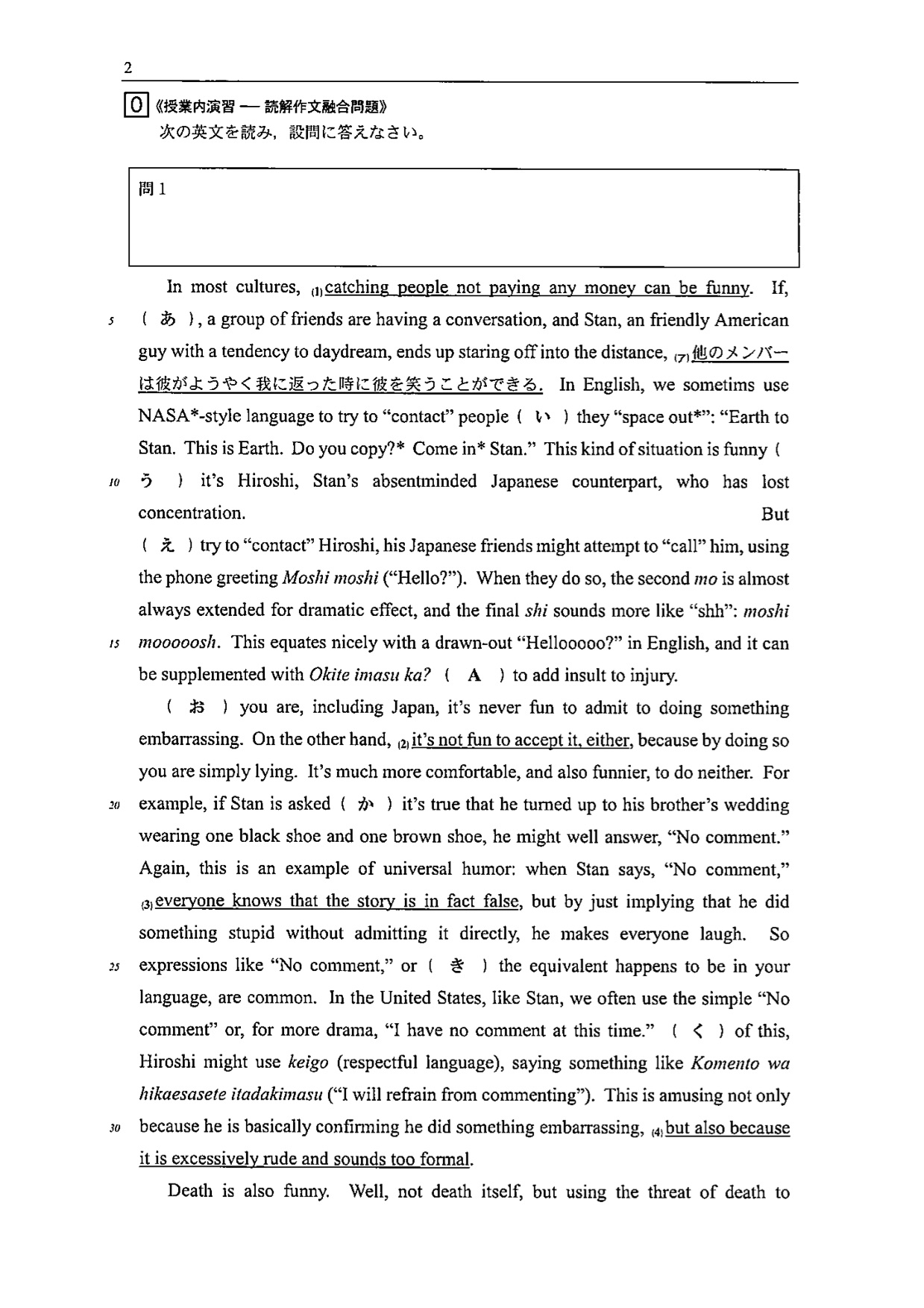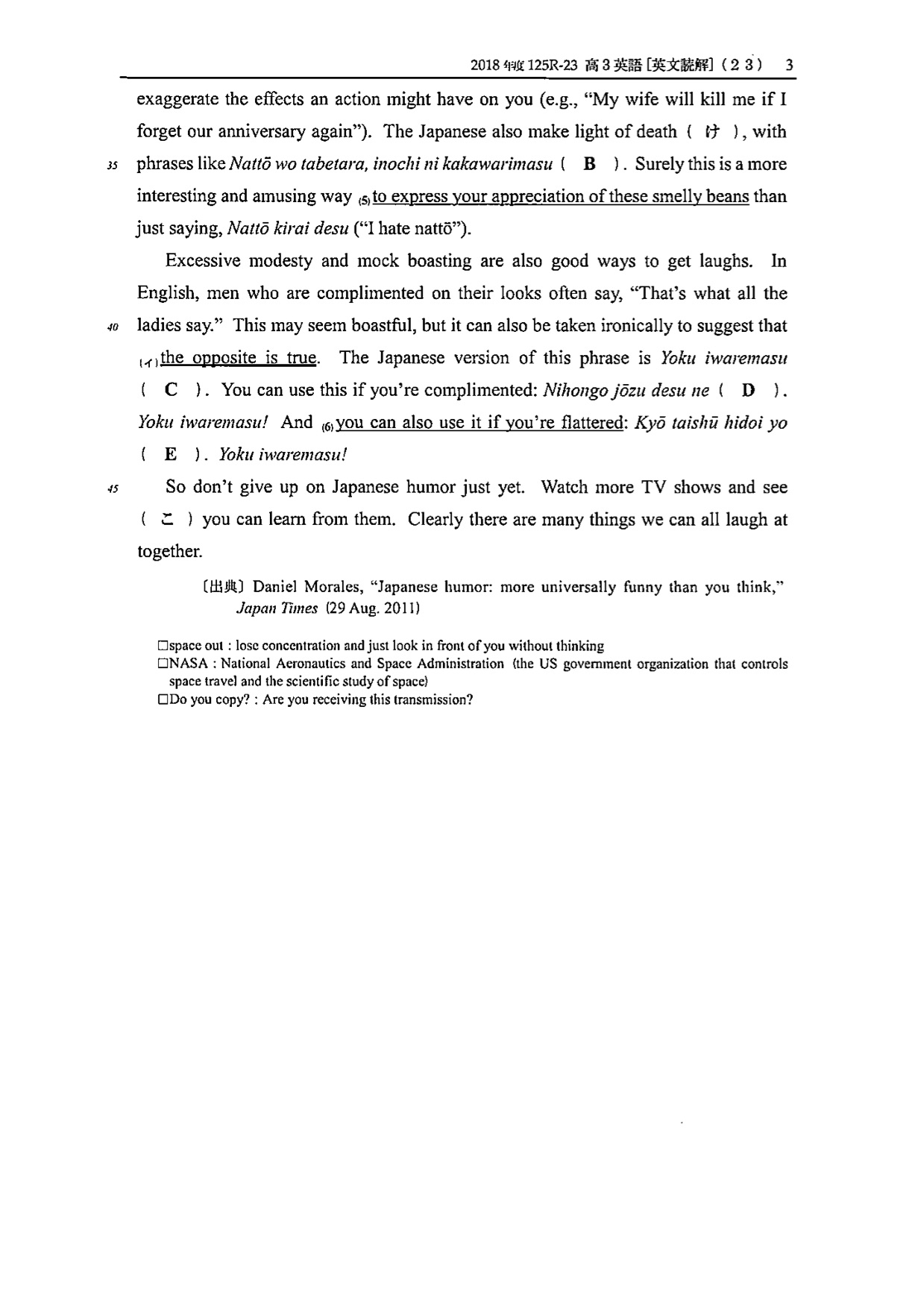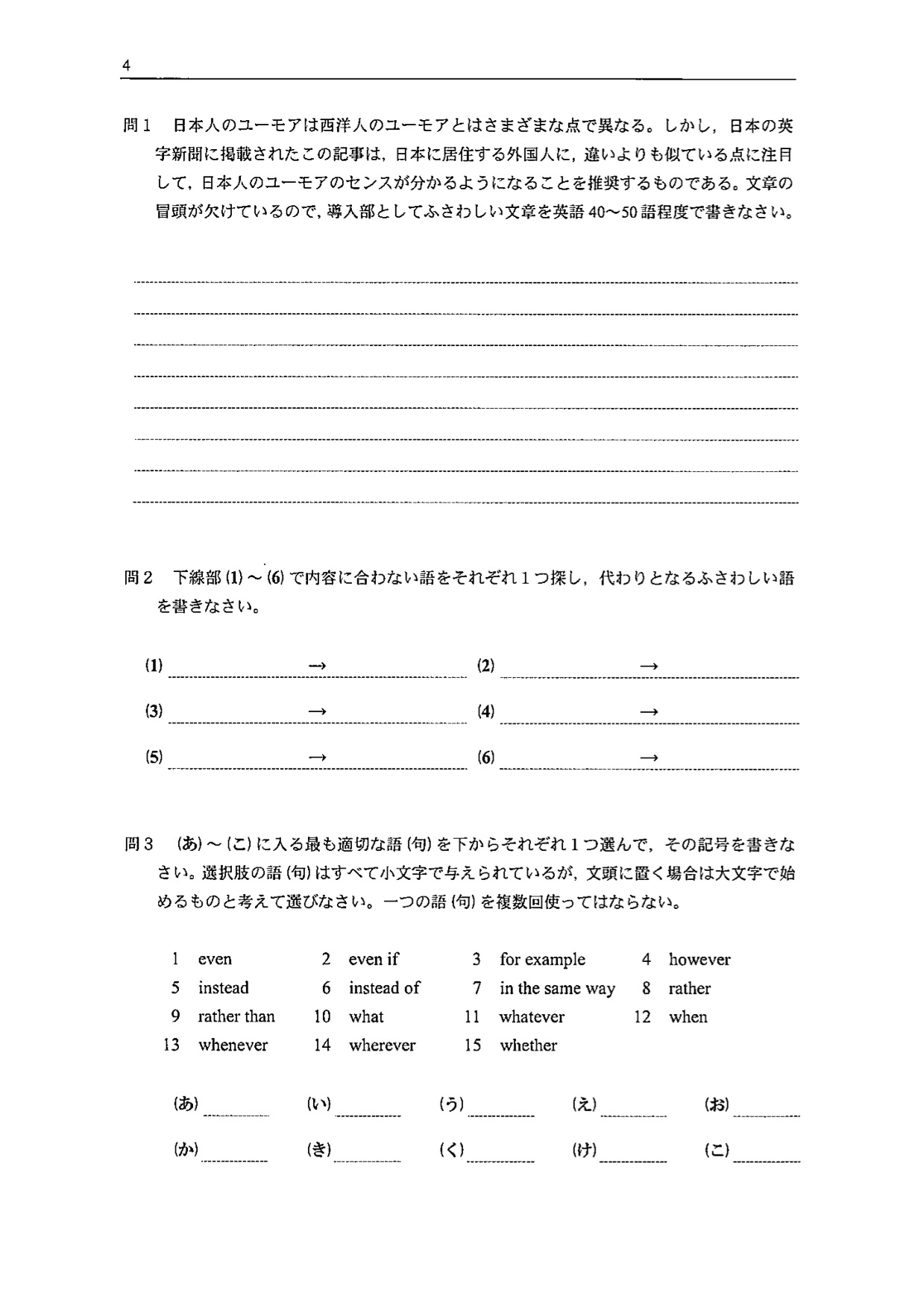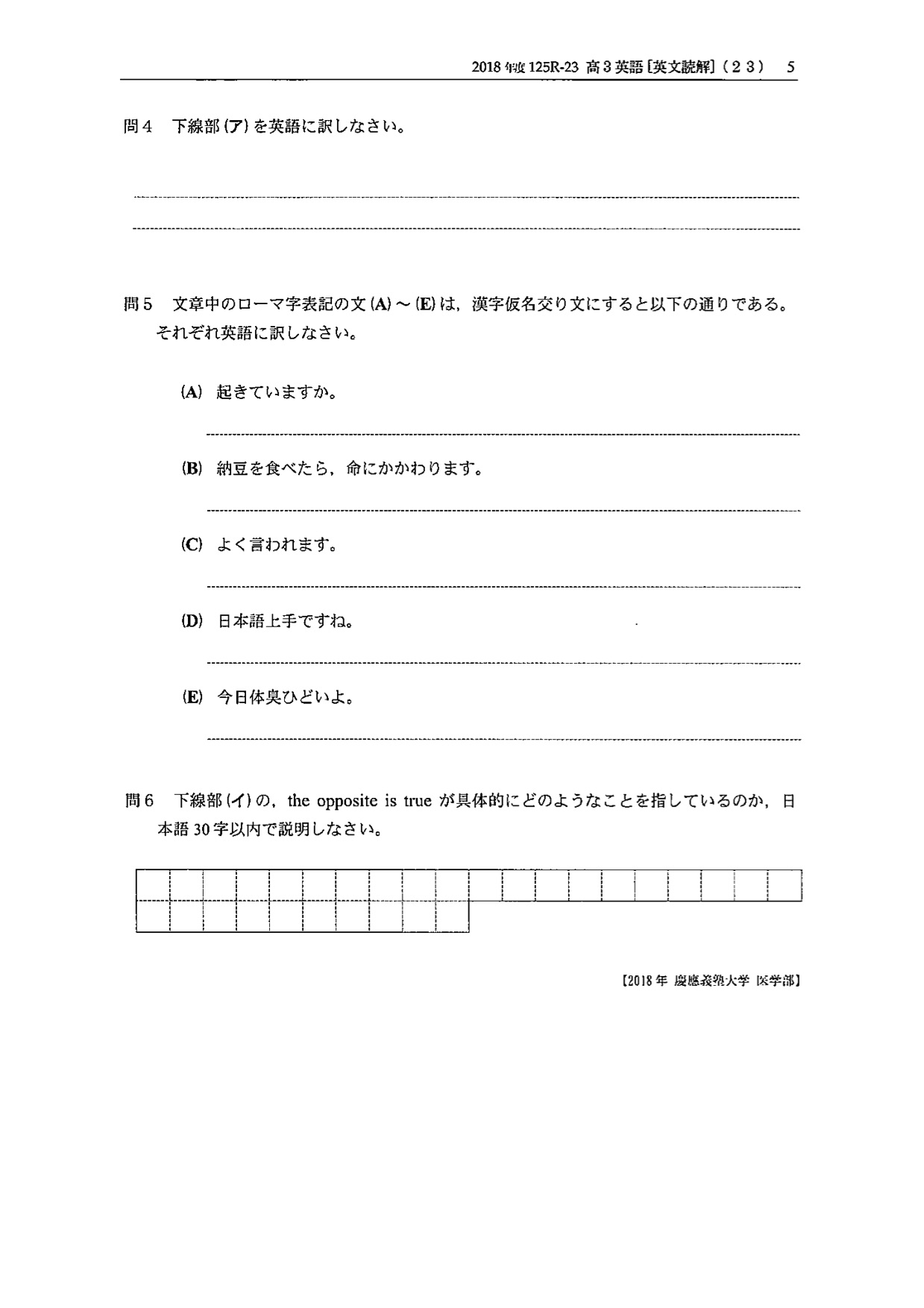So Keio University used one of my Japan Times articles on their entrance exam this year. That’s a thing that happened.
I wrote a little about it (and writing as a side hustle) over on my personal site.
They used “Japanese humor: more universally funny than you think,” one of my earliest for the JT. I’ve written 50 articles for the Bilingual page now, and this was my seventh, so the style feels a bit awkward at times, the word choice clunky, and the Japanese examples kind of sparse, but there are still some good points.
Here’s what the version on the test looks like:




They did some pretty significant editing and rewriting for the test, which makes sense. The target audience here isn’t native speakers. To be honest, they could have changed more, but their edits make it somewhat more readable by giving each joke a clean introduction. Hopefully that made it less trying for the applicants (to the medical school, which is shown at the bottom of the final page).
The questions are interesting: 1) write an introductory paragraph in English, 2) replace the word in the underlined phrases that doesn’t make sense with a word that does make sense, 3) place the appropriate conjunctions in the blank spots in the text, 4) translate the underlined Japanese sentence into English, 5) translate the marked Japanese phrases into English, and 6) translate “the opposite is true” into Japanese.
That’s an awful lot of work to do for a single reading comprehension passage. I wonder how much time they had to get through it? 20 minutes? 30 minutes? Probably less.
It’s very interesting to learn that Keio did not have to ask the JT permission to use the text on the exam and that in the past they weren’t even citing the author or publication (“Entrance exams breaking copyright law? Academically unethical?”). I wonder how the writer discovered that texts were being used.
I suspect that they were being reprinted in books of past exams which get used as study guides. That’s how I learned my article was used—the publisher notified the JT and was required to pay them usage rights and me author fees. Actually, I’m not certain if it’s required, but they seemed willing to pay the rates.
I wonder how many other JT authors this has happened too. Any readers know of this happening?
